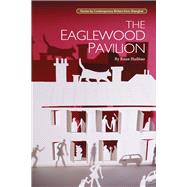The two stories in this collection of Chinese stories are related to the life of people living in the old urban area in Shanghai.
The Eaglewood Pavilion
In an old building in the Old Town area, the Eaglewood Pavilion was marked by a low door-lintel, worn-out door-leaves, a broken basket hung under the eaves, and disorderly interior structure. Its residents felt the increasing pressure of survival as they saw the city rapidly changing around them, and clashes between old and new concepts. Due to the small space of the rooms and undesirable living environment, Xiaomao's mother worried about the marriage of her son all day long. Grandpa Rice Wine had to live with his daughter-in-law and grandson under the same roof. Dawei and his wife found it unrealistic to give birth to a child. The son of Li Rihai stayed away from home, finding it impossible to live with his father, a former Taoist priest.
The pavilion was about to be demolished to make way for a new development. The government planned to compensate these residents based on the size of their living space. Quarrels broke out among the neighbors as they tried to claim as much space as possible. An unexpected fire burnt down the pavilion. As these residents moved into new apartments according to the set plan, all the grudges were gone.
This small old building embodies various aspects of human life and all kinds of feelings, enabling readers to experience the complexities of everyday living.
The Loser
This story recounts Master Chang Gen, a quack, as told by his young apprentice named Sancai.
Even though he seemed ordinary, Master Chang Gen treated patients and saved their lives with his miraculous hands. He appeared to be able to deal with all kinds of illness and his small room was often filled with patients. However, it was found several years later that he was not a marvelous doctor and did not really heal his patients. This led to the sharp drop of his reputation in the community. Consequently, he had to work as a street vendor and lived in poverty. In the end, Chang Gen died unexpectedly from fear when a former patient threatened to sue if he couldn't find him a cure.
Both the residents of the Eaglewood Pavilion and Master Chang Gen are examples in the changes during these times. With unique perspectives, the author depicts the changes in their lives while enabling readers to get to know the hardship of people living at the bottom of society.








